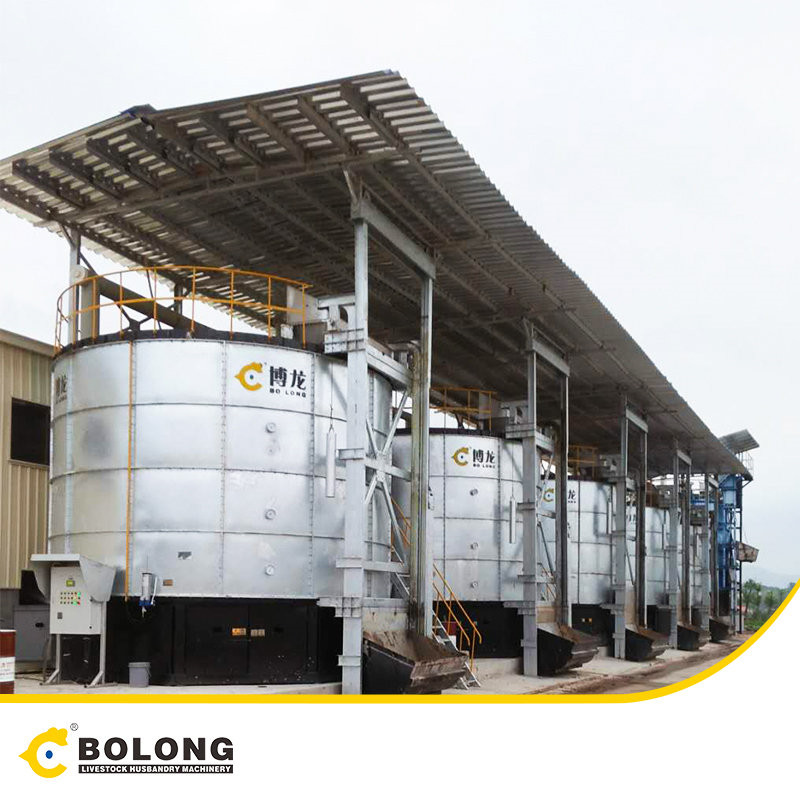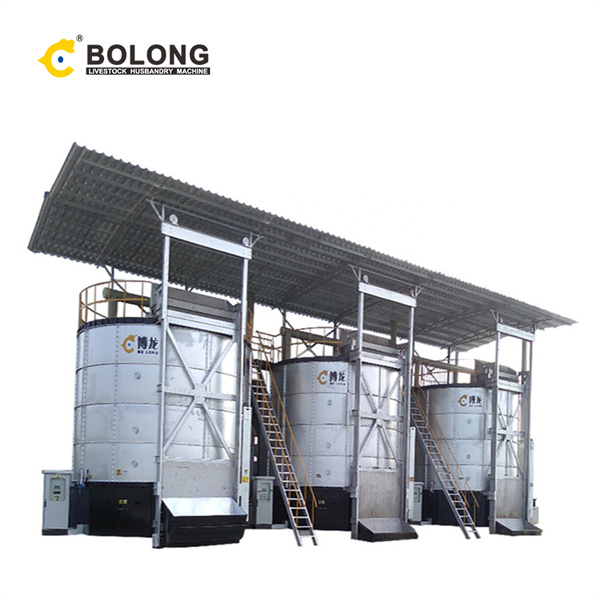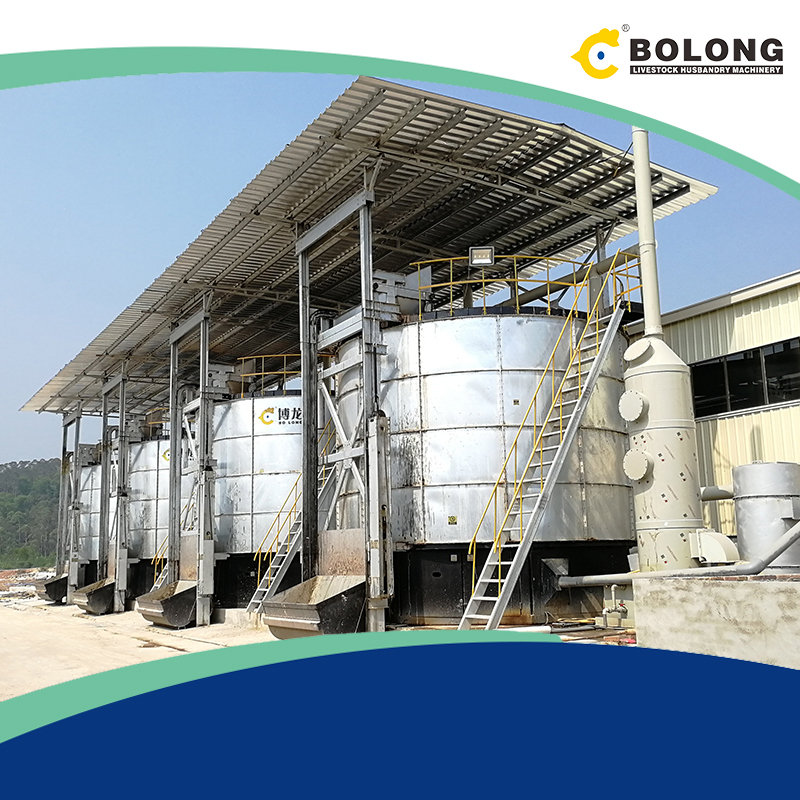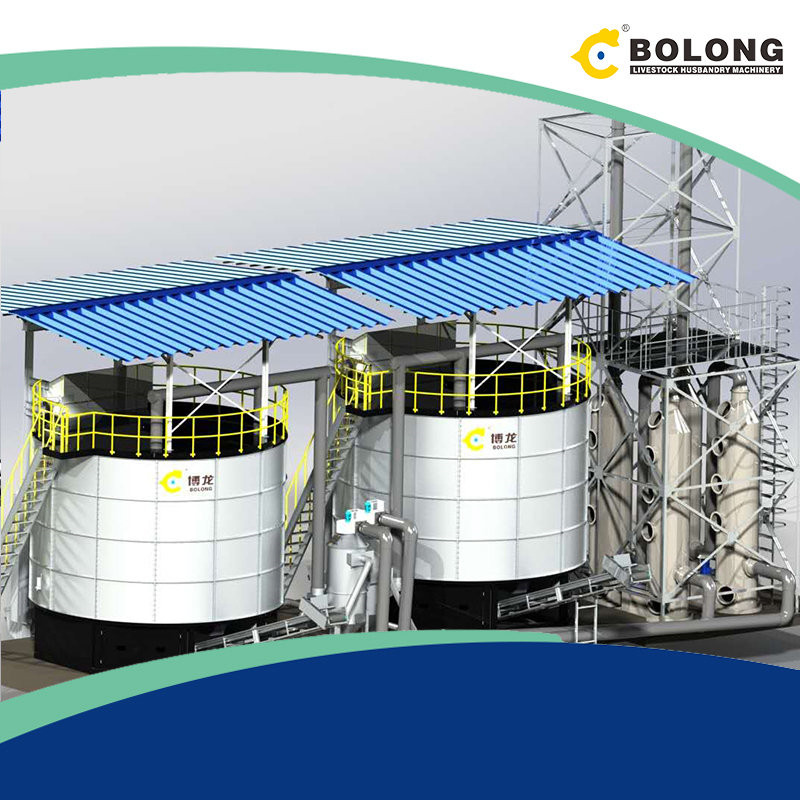-
 Chicken Manure Compost Tank: A Revolutionary Approach to Poultry Waste ManagementPoultry farming generates millions of tons of chicken manure annually, creating both environmental and operational challenges. Traditional manure disposal methods often lead to odor pollution, groundwater contamination, and inefficient waste utilization. To address these issues, Bolong’s high-tech chicken manure compost tank provides a highly efficient and sustainable solution, turning waste into valuable organic fertilizer in just seven days. Challenges in Chicken Manur...View More +
Chicken Manure Compost Tank: A Revolutionary Approach to Poultry Waste ManagementPoultry farming generates millions of tons of chicken manure annually, creating both environmental and operational challenges. Traditional manure disposal methods often lead to odor pollution, groundwater contamination, and inefficient waste utilization. To address these issues, Bolong’s high-tech chicken manure compost tank provides a highly efficient and sustainable solution, turning waste into valuable organic fertilizer in just seven days. Challenges in Chicken Manur...View More + -
 How Chicken Manure Composting Machines Improve Poultry Waste ManagementManaging chicken manure efficiently is a major concern for poultry farmers. Not only does improper disposal lead to environmental damage, but it can also result in the loss of valuable nutrients that could be used to improve soil health. The chicken manure composting machine has revolutionized how poultry farms handle waste, turning it into a resource that can benefit both the environment and the farm’s bottom line. What is a Chicken Manure Composting Machine? A h...View More +
How Chicken Manure Composting Machines Improve Poultry Waste ManagementManaging chicken manure efficiently is a major concern for poultry farmers. Not only does improper disposal lead to environmental damage, but it can also result in the loss of valuable nutrients that could be used to improve soil health. The chicken manure composting machine has revolutionized how poultry farms handle waste, turning it into a resource that can benefit both the environment and the farm’s bottom line. What is a Chicken Manure Composting Machine? A h...View More + -
 Organic fertilizer composting machine: the technical engine behind organic agricultureAt a time when organic agriculture is booming, the production of organic fertilizer has become the core link of sustainable agricultural development. As the key equipment for producing organic fertilizer, the organic fertilizer composting machine is pushing organic agriculture to a new height with its unique technical advantages and wide application value. 1. Composting machine types are suitable for diversified production ①Horizontal composting machine: large capacity and stron...View More +
Organic fertilizer composting machine: the technical engine behind organic agricultureAt a time when organic agriculture is booming, the production of organic fertilizer has become the core link of sustainable agricultural development. As the key equipment for producing organic fertilizer, the organic fertilizer composting machine is pushing organic agriculture to a new height with its unique technical advantages and wide application value. 1. Composting machine types are suitable for diversified production ①Horizontal composting machine: large capacity and stron...View More + -
 Composting machine application of new materialsWith the advancement of agricultural modernization, the role of organic fertilizer composting machines in organic fertilizer production has become increasingly critical. In order to further improve the performance of composting machines and meet the growing demand for agricultural production, the application of new materials has become a research hotspot. With its unique properties, new materials have brought new opportunities for the development of organic fertilizer composting machines with...View More +
Composting machine application of new materialsWith the advancement of agricultural modernization, the role of organic fertilizer composting machines in organic fertilizer production has become increasingly critical. In order to further improve the performance of composting machines and meet the growing demand for agricultural production, the application of new materials has become a research hotspot. With its unique properties, new materials have brought new opportunities for the development of organic fertilizer composting machines with...View More + -
 Importance of composting machine in agricultureWith the development of modern agriculture and agriculture, environmental protection and the sustainability of resource utilization have become the focus of the industry. In this context, organic fertilizer composting machines, as an emerging technical equipment, are increasingly used in agriculture, which is of great significance to improving agriculture benefits, reducing environmental pollution and promoting the development of agricultural circular economy. This article will explore the ro...View More +
Importance of composting machine in agricultureWith the development of modern agriculture and agriculture, environmental protection and the sustainability of resource utilization have become the focus of the industry. In this context, organic fertilizer composting machines, as an emerging technical equipment, are increasingly used in agriculture, which is of great significance to improving agriculture benefits, reducing environmental pollution and promoting the development of agricultural circular economy. This article will explore the ro...View More + -
 The Science Behind Composting Machines: Improving Fertilizer Stability and EffectivenessWith the growing demand for fertilizers in agricultural production, the quality and environmental impact of fertilizers has become an important issue in modern agricultural development. The use of traditional fertilizers often brings environmental problems such as soil pollution and water eutrophication, while the use of high-quality, organic fertilizers has become the key to promoting sustainable agricultural development. In recent years, the application of fermentation technology in the pro...View More +
The Science Behind Composting Machines: Improving Fertilizer Stability and EffectivenessWith the growing demand for fertilizers in agricultural production, the quality and environmental impact of fertilizers has become an important issue in modern agricultural development. The use of traditional fertilizers often brings environmental problems such as soil pollution and water eutrophication, while the use of high-quality, organic fertilizers has become the key to promoting sustainable agricultural development. In recent years, the application of fermentation technology in the pro...View More +